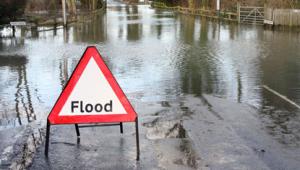13 February 2009
By Graham Clews
Local authorities and central government have set up an emergency 'Salt Cell' to ensure there is enough gritting salt for roads, as the extreme winter weather continues.
Many councils are running out of the salt after more than a week of treating roads daily to combat the heaviest snowfalls for almost 20 years.
The Salt Cell, which includes the Department for Transport, the Local Government Association, the Highways Agency and the Cabinet Office, will meet up to three times a day to consider how much salt is available for each local authority and Highways Agency area.
It will also assess what supplies are expected from abroad, what supplies are due from the UK's main salt mine in Cheshire, and the weather forecast for different parts of the country. Salt will then be transferred, if necessary, to the areas in most need. The cell is expected to meet at least until February 20.
While snow has continued to affect the north and west of the UK, freezing overnight temperatures have been a national problem, and southern England has suffered heavy rains and consequent flooding.
Freeze-thaw damage is expected to have caused much more extensive, and expensive, damage to road surfaces across the country than usual. A Highways Agency spokeswoman said it had identified areas of road surface damage on 'isolated sections of our strategic road network'. Emergency surface repair work is being carried out.
The LGA said local authority staff would assess the situation on their roads as soon as the immediate problems of snow, ice and flooding had been dealt with. A spokesman said the mechanisms for sourcing, buying and storing the salt would be reviewed before next winter.
Local authorities and the Highways Agency would have to consider whether storing larger quantities of salt would be cost-effective, he said. They would also look at how the salt is supplied.
There have also been suggestions that salt could be replaced by magnesium chloride, as has happened in some parts of the US, as it might be less harmful to the environment.
The extraordinary levels of salt discharged on to roads, 100,000 tonnes a night or more during peak periods, can have a significant effect. The Environment Agency said plants that are usually found only on salt marshes can grow on roadside verges where there has been heavy run-off from salt.
PFfeb2009



















